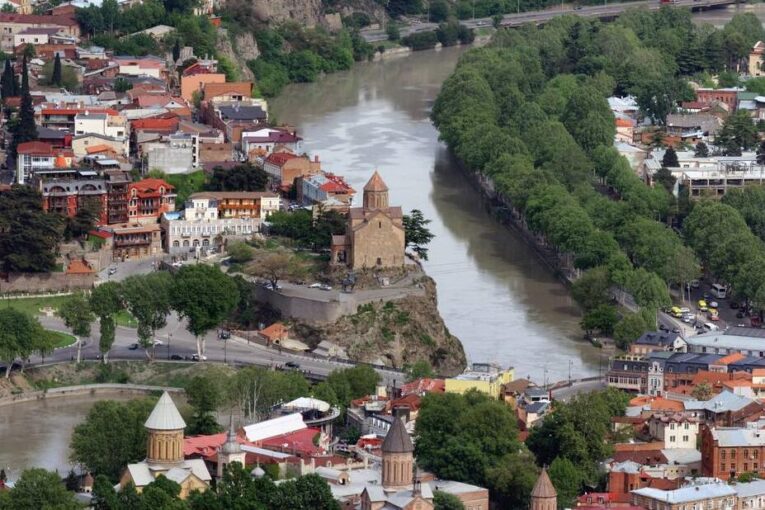Economy
Georgia declared its independence in 1991. Although President Eduard Shevardnadze introduced basic democratic rules, he did not fight corruption. Poverty and unemployment increased – despite above-average foreign aid. More and more people emigrated to Russia or the European Union. The so-called “Rose Revolution” ushered in a change of power in November 2003, but M. Saakashvili was only able to achieve his goals to a limited extent: the fight against corruption and mismanagement, sustainable economic growth and poverty reduction. The reform program was demanding and legally sanctioned, the practical implementation remained problematic, which in 2013/14 favored a change of power.
GDP (2019): $ 15.9 billion
Per capita income (2019): $ 4,289
Human Development Rank (HDI): 0.786 Rank 70 of 189 (2020 for 2019)
Share of poverty (World Hunger Index, 2019): 9.2 ranks 39 out of 117 states
Distribution of income (Gini Index, BTI 2020): 37.9
Economic Transformation Index (BTI, 2020): 6.18 (ranked 47 of 129)
According to estatelearning, the Economy of Georgia experienced in the nineties a sudden crash from which the country only slowly recovering. Since 2004, the new government has introduced a sharp reform policy that made Georgia the most business-friendly country in the region, as confirmed by country reports on the business climate, including the World Bank. Ease of Doing Business 2020 puts Georgia in 7th place out of 190, HERMES ranks G. in 6th place (1 = lowest risk category, 7 = highest) in the country category.
Details on the development can also be found in the current Bertelsmann Transformation Index (BTI): According to this, Georgia scored 6.80 out of 10 points in the index for democracy (defective democracy) in 2018, and 6.04 points in the index for market economy (“market economy with functional deficits “) and 5.87 points in the index for” Political Management “(good).
The new Statistical Agency of Georgia / GeoStat) provides more detailed information on various industries and socio-economic data. The German foreign trade representation in Georgia provides information on current economic developments through a newsletter.
Since 2004, the new Georgian government has been pursuing a policy that is clearly oriented towards the market economy. Focus of the more than 70 reforms were on the improvement of the legal and economic framework as well as in the financial and energy sectors paired with a sometimes radical privatization policy and the action against the shadow economy, which had a positive effect on the state budget and economic growth with a surge in foreign investments. Break-ins occurred primarily in connection with the 2008 Russian-Georgian war. In 2012, as part of the fight against corruption, the disclosure of all incomes of politicians and senior officials was initiated. The file, which contains, among other things, all official company holdings, real estate, cars and fixed assets and income of politicians and senior officials, can be obtained from Transparency International Georgiacan be downloaded from declarations.ge. A critical civil society, however, repeatedly questions the role of Bidzina Ivanishvili, who as a businessman has considerable influence not only in political but also in economic life through the “Georgian Dream” party.
The real gross domestic product was stable between eight and ten percent in the years 2005 to 2007; it only fell in 2008 due to the war and the global economic crisis. At the end of 2009 Georgia had stabilized again, in 2010 and 2011 the GDP was 6.4% and 6% respectively. As a result of the political power struggles in 2012/13, GDP fell again to 3.6% in 2013 and recovered slightly after 2014. The report of the State Statistical Committee of June 2018, despite the lack of noticeable social improvements in the country, went from economic growth rates of 5 to 6 % in the first half of 2018, for the whole of 2018 the figure was 4.5% and thus slightly below the value of 2017 (5%).
The inflation rate for 2018 was given as 2.6%, reached 4.3% in 2019 and was estimated at 3.8% in 2020. However, the consequences of the corona pandemic are already drastic and will influence all economic statistics. In parallel to the political turbulence of 2019, important parameters, especially in foreign trade, declined; this negative trend will continue in 2020 due to the corona, although the government has adopted an extensive catalog to support the economy:
Agricultural crisis management plan
- Every farmer who has registered land receives 200 GEL per hectare from the state;
- All farmers receive 150 liters of diesel fuel per hectare at a guaranteed preferential price, which is 1 Lari below the market price;
- Every farmer in Georgia (around 42,000 nationwide) will be completely exempt from irrigation fees by the end of 2020;
- In order to promote the agricultural industry, the state will finance 50% of the expenditure (purchase of technology / equipment and irrigation systems, installation and modernization of greenhouses) in the form of grants.
- The state provides a 5-year subsidy of 4% of the mortgage loan interest rate. The grant is granted on loans of up to GEL 200,000.
- The state will provide a mortgage loan guarantee (up to GEL 200,000) equal to 20% of the loan amount for 5 years from the date of the loan. The guarantee applies to those loans in which the participation is at least 10%.
Crisis Management Plan for the Tourism Sector
- Exemption 2020 fully exempt from property tax;
- The government will subsidize 80% of the business loan interest rates for hotels with annual sales not exceeding GEL 20 million;
- The government will co-finance 90% of the catering industry when taking out new bank loans.
Domestic tourism will be allowed in Georgia again from June 15th, foreigners will be allowed to enter Georgia from July 1st.
